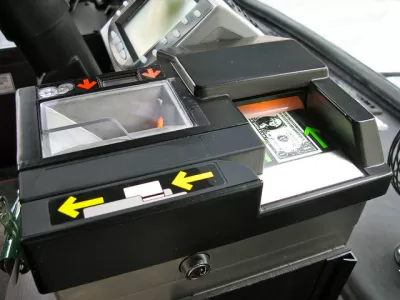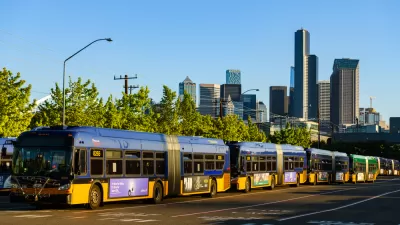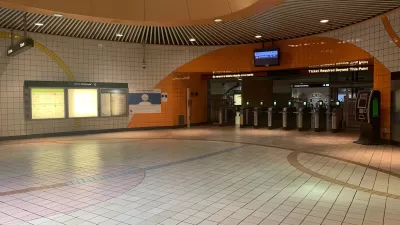The District may soon remove criminal penalties from fare evasion with a proposal that would lower fines and strike the possibility of jail time.

In the past year, officials in New York, Washington state, and California have relaxed the consequences to fare evasion, or decriminalized it altogether; in Cleveland, enforcement duties were recently transferred from police to civilian inspectors. In light of another decriminalization proposal in D.C., the Washington Post's Martine Powers looks into why some lawmakers are backing down from the broken windows approach to transit fares.
"Targeted enforcement campaigns are bound to ensnare poor and low-income people who don’t have the money to pay their fares — let alone fines," Powers explains. Cracking down on a crime of poverty through steep fines—or with police encounters, a major predictor of police killings—is not only inequitable, lawmakers argue, but also impractical: The resources needed to prosecute the minor offense are less likely to be recouped, while taking no action has yet to yield negative consequences.
FULL STORY: Here’s why some lawmakers are pushing back against fare evasion crackdowns

Alabama: Trump Terminates Settlements for Black Communities Harmed By Raw Sewage
Trump deemed the landmark civil rights agreement “illegal DEI and environmental justice policy.”

Planetizen Federal Action Tracker
A weekly monitor of how Trump’s orders and actions are impacting planners and planning in America.

The 120 Year Old Tiny Home Villages That Sheltered San Francisco’s Earthquake Refugees
More than a century ago, San Francisco mobilized to house thousands of residents displaced by the 1906 earthquake. Could their strategy offer a model for the present?

Ken Jennings Launches Transit Web Series
The Jeopardy champ wants you to ride public transit.

BLM To Rescind Public Lands Rule
The change will downgrade conservation, once again putting federal land at risk for mining and other extractive uses.

Indy Neighborhood Group Builds Temporary Multi-Use Path
Community members, aided in part by funding from the city, repurposed a vehicle lane to create a protected bike and pedestrian path for the summer season.
Urban Design for Planners 1: Software Tools
This six-course series explores essential urban design concepts using open source software and equips planners with the tools they need to participate fully in the urban design process.
Planning for Universal Design
Learn the tools for implementing Universal Design in planning regulations.
Clanton & Associates, Inc.
Jessamine County Fiscal Court
Institute for Housing and Urban Development Studies (IHS)
City of Grandview
Harvard GSD Executive Education
Toledo-Lucas County Plan Commissions
Salt Lake City
NYU Wagner Graduate School of Public Service





























